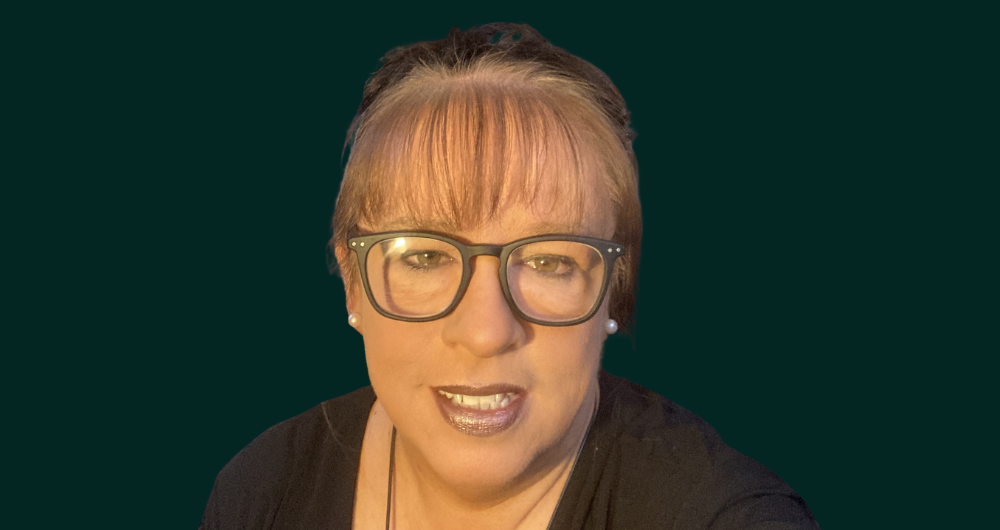
Professor Caroline McMullan
If the Dublin Fire Service had a digital map of the city; with real-time information about hydrants, exits, fire stairs, occupancy, prevailing winds, toxic storage, access routes; Dubliners could sleep more soundly at night.
Professor Caroline McMullan, Full Professor of Business and Society at the DCU Business School, is working with the Dublin Fire Brigade and the Insight Research Ireland Centre for Data Analytics at DCU to develop exactly this resource – using the DCU campus as a testbed. The team is employing what is known as Digital Twin technology to create a virtual map of the DCU campus featuring all the information the Fire Brigade needs to win back life-saving minutes in an emergency.
Their work is ground breaking and has attracted the attention of the EU, NATO and the OECD. In terms of crisis management, this work is right at the frontline.
Prof McMullan, Insight’s newest member, has been innovating in the field of risk and crisis management since early in her career, when she was appointed a lecturing position at the University of Ulster in the brand new discipline of Decisions Making under Crisis Conditions.
Prof McMullan was fascinated by how people behave in a crisis –how some emerge as leaders, and often not the ones that are more assertive in day-to-day life. She used her insights to develop a PhD in Crisis Management at the University of Strathclyde.
The Omagh bombing was a turning point, as she was tasked with designing an online simulation of a hospital emergency to help rebuild the confidence of staff impacted by the tragedy. Her system was subsequently rolled out to 11 hospitals north and south of the border.
Her next role was in Dublin City University developing a postgraduate qualification in Disaster, Emergency and Crisis Management, the first of its kind in Ireland. This work attracted the attention of the Irish government and she was invited to develop Ireland’s first National Risk Assessment with the Emergency Planning Team at the Department of Defence. She was subsequently invited by McKinsey Consulting to develop a National Risk Assessment for one of the Gulf states, demonstrating the wide applicability of her methodology.
This methodology is built on a cycle of continuous improvement, ensuring that the system is always learning and updating. The has attracted a lot of international attention – Prof McMullen is currently through to the second round of a funding bid, in partnership with Harvard University, for NATO’s Science for Peace and Security Programme. She is the lead risk adviser to the Irish government.
Her work with Insight has brought the concept of Digital Twinning to her crisis response work, and she is combining her extensive experience of emergency management with the deep computing expertise at Insight. A team comprising McMullen, Ali Intezar and Prof Tomás Wardis working on a project called DT4EM (Digital Twins for Emergency Management) to work with the Dublin Fire Brigade, with the DCU campus as a use case.
If there was an emergency at the DCU campus tomorrow, the Fire Brigade could use the DCU Digital Twin to familiarise themselves with the site on a device, prior to arrival. Firefighters could arrive knowing all the key information – fire routes, hazards, chemical storage, emergency exits, building layout and so much more. The information comes from multiple sources including sensors in the building – Insight has significant expertise in sensor technology.
McMullan places huge value on the partnership with Insight for this project.
‘I cannot believe the way the Centre works – there is so much support and leadership. The expertise we need can be found in a couple of phone calls. On the management side there is a team working to ensure we maximise our funding and the impact of our work. They are always looking for new opportunities, new sources of finance and new partners to work with. I love being part of it.
‘The combination of the data expertise in Insight, the partnership with the Dublin Fire Brigade and my own work in emergency management is really opening up a whole world of high impact research opportunities. This work could be applied in managing ports, traffic, aviation, flooding – the sky’s the limit. It’s a great example of how we can tackle large societal issues through academic research. This technology will save lives.
‘The plan is for the Dublin Fire Brigade to roll the model out across the city once it has been fully tested at DCU. Once the Digital Twin is in place for a building or a locale, it has the potential to be used by other services, such as An Garda Síochána and the Dublin Ambulance Service. There is so much potential here to create a really resilient city.’